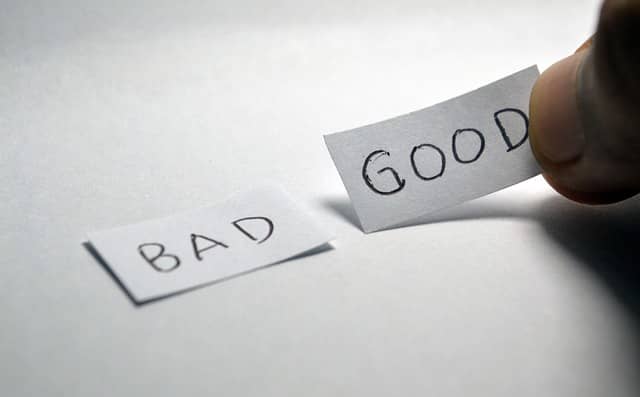Are the boys evil in Lord of the Flies? One of the central themes of William Golding’s Lord of the Flies is the idea that human beings are inherently savage and violent. The novel depicts a group of boys who are stranded on a deserted island and are forced to rely on their own resources to survive. Although the boys come from a civilized background, it is not long before the savagery within them begins to take hold and drive events. From a group of playful schoolboys, they are transformed into violent hunters who destroy the environment around them and kill their fellow human beings.
Are the boys evil in Lord of the Flies? (Answer)
At the novel’s beginning, the boys are excited about the prospect of being on a deserted island with no adults to tell them what to do. They are full of energy and enthusiasm, and they spend their time playing games and exploring their new surroundings. However, as time goes on, they begin to realize that they are in a dangerous situation and start feeling scared and vulnerable. This sense of fear and vulnerability leads to a breakdown in their social order, and the boys begin to turn on each other.
One key factor contributing to the boys’ descent into savagery is their lack of adult supervision. Without the guidance of grown-ups, they are free to act on their impulses and desires without any sense of responsibility or consequence. This lack of accountability leads them to engage in violent and destructive behavior, which eventually results in the deaths of several of the boys.
However, it is important to note that the boys are not inherently evil. They are human beings who have been placed in an extreme situation, and they are struggling to survive. While their actions may be violent and destructive, they are not motivated by malice or cruelty. Instead, they are driven by a desire to protect themselves and assert their dominance over the other boys.
What are some examples of the boys being evil in Lord of the Flies?
Throughout Lord of the Flies, there are numerous instances that showcase the boys’ descent into evil. One example is when they place Piggy outside the group, mocking and belittling him for his physical appearance and intellectual abilities. This act of exclusion and cruelty demonstrates their willingness to dehumanize others for their own amusement. Another example is Roger’s sadistic behavior, epitomized by his throwing stones near Henry, seemingly testing his power to inflict harm without actually doing so. The frenzied murder of Simon reveals the boys’ collective participation in a brutal act, fueled by fear and primal instincts, as they mistake him for the beast. Finally, the death of Piggy represents the ultimate manifestation of evil within the group – an intentional act of violence driven by Jack’s thirst for power and control over others.
Who is the villain in Lord of the Flies?
In Lord of the Flies, Jack Merridew emerges as the primary villain. Initially, Jack is portrayed as a charismatic and confident leader, but his lust for power and authority gradually corrupts him. He becomes obsessed with hunting and violence, forming a savage tribe that opposes Ralph’s democratic leadership. Jack’s manipulative tactics and disregard for morality lead to the destruction of order on the island, pitting him against Ralph and ultimately leading to chaos and tragedy. Throughout the novel, Jack embodies the darker aspects of human nature, making him a compelling and terrifying villain in this gripping tale.
What do the boys represent in Lord of the Flies?
In Lord of the Flies, the boys represent different aspects of society and human nature. Ralph embodies civilization and democracy, striving to establish order and maintain a sense of community. Piggy symbolizes intellect and rationalism, using his intelligence to analyze situations and provide logical solutions. Jack represents savagery and dictatorship, seeking power and control over others through violence. Simon personifies goodness and saintliness, often retreating into solitude to contemplate the deeper meaning of their situation. Together, these characters effectively portray a microcosm of society, illustrating the tensions between civilization and primal instincts that exist within human nature.
Why do the boys become savages in Lord of the Flies?
In Lord of the Flies, the boys become savages due to the absence of adult supervision and the breakdown of conventional society. Stranded on an uninhabited island, they are initially excited by the prospect of freedom and adventure. However, as time elapses without any external authority to maintain order and enforce rules, their social structure begins to crumble. With no consequences for their actions, they gradually succumb to their primitive instincts, driven by fear and desires for power and dominance. The absence of adult guidance exposes their innate savagery as they engage in acts of violence and brutality that reflect a regression toward a more primal state.
Conclusion
In conclusion, while the boys in Lord of the Flies may be portrayed as savage and violent, it is important to remember that they are not inherently evil. They are human beings who have been placed in a difficult and dangerous situation, and they are struggling to survive. Their actions may be extreme, but they are driven by a basic instinct for self-preservation, rather than a desire to cause harm to others. Ultimately, the novel serves as a cautionary tale about the dangers of human nature and the need for social order and accountability to prevent the worst aspects of our nature from taking hold.
